Decade of Impact

1 Food and Forest Development Finland
A
Food and Forest Development Finland – A Decade of Impact
FFDs 10th year anniversary publication
October, 2023
Finnish Agri-Agency for Food and Forest Development


Simonkatu 6, 00100 Helsinki, Finland
www.ffd.fi
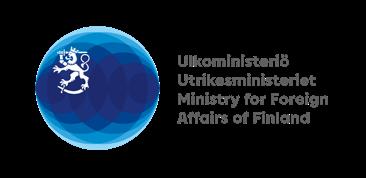
© Food and Forest Development Finland - FFD, 2023
Editors: Tiina Huvio, Jenny Öhman
Texts and pictures: FFD staff, Project Partners and Twinning Partners
Proof reading and translation: Matias Mettälä, Janita Jamalainen, Shirlene Green Newball
Graphic design: Ruben Stragier, Blue
Icons: Flaticon
Printing: Grano
ISBN 978-952-94-8356-3
This publication has been supported by: Maa- ja metsätaloustuottajain Keskusliiton säätiö


A Decade of Impact
3
5
Introduction – Tiina Huvio
6–7
Ten Years of Farmer Support
FFDs Results during 10 Years
8–9
Presentation of Work Areas & Partners
10–11
Starting from Production
12–15
From Grassroot Level for Global Influence – Climate and Food Systems


24–27
Sustainable Forest Management and Farm Forestry
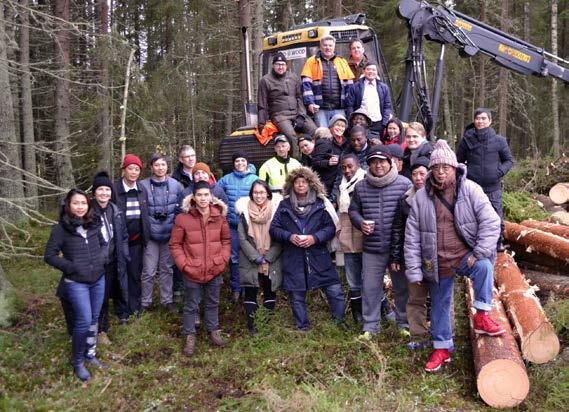

16–21
Inclusion – Women, Youth, People with Disabilities
28–29
FFD’s deep expertise in both agriculture and climate change has strengthened Finland’s work to improve the position of smallholder farmers. FFD has an exceptionally wide international network and cooperation with the private sector, which supports obtaining sustainable results.
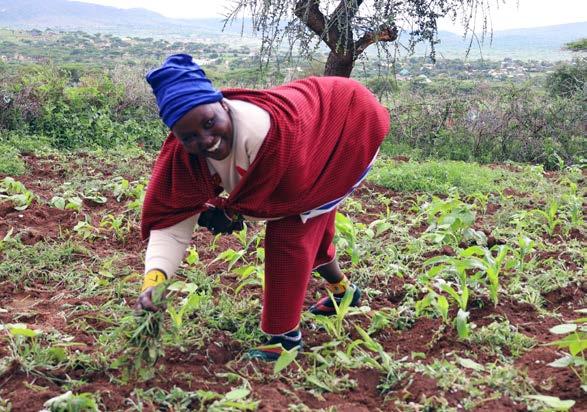
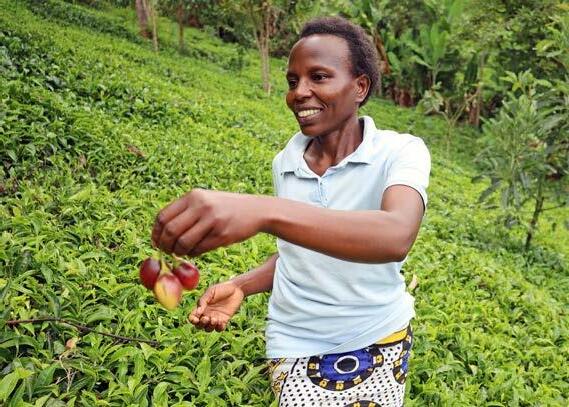
 Sanna-Liisa Taivalmaa, Rural Development Adviser for the Ministry for Foreign Affairs of Finland
Sanna-Liisa Taivalmaa, Rural Development Adviser for the Ministry for Foreign Affairs of Finland
The FFD Team
32–33
A Decade of Impact
34
Quality, Quality, Compliance 22–23
Connecting People –Peer Support through the Twins
30–31
4 Table of Content
Foreword – Juha Marttila
“
–
Beyond Income, towards Self-esteem and Advocacy
When I was nominated for the position of the chair of the board of the Finnish Agri-agency for Food and Forest Development (FFD), I didn’t foresee that I’d still be in it after ten years. But the years pass rapidly when you are involved in something interesting and rewarding. FFD continued the solidarity work initiated by The Central Union of Agricultural Producers and Forest Owners (MTK), in the 80s. MTK is committed to the UN’s sustainable development goals (SDG), and we believe that this is the one form of work for an organization of our size and scope in our international network. FFD has continued our work started in the 80s providing us with a concrete and successful channel to share solidarity not only for the Finnish farmers but also for their peers in the global South. Sustainable food security, the position of farmers in the food system, and sustainable forest management are our common concerns.
In ten years, FFD has managed to reach 108.000 farmers directly in 11 different countries. As in all development work, not all the projects have reached all the goals that we established but many activities have left an immeasurable impact on people’s lives and welfare. While increased income helps people to fight against poverty, I believe that increased self-esteem, confidence, and capability to defend their interests and rights that many farmers, men and women, have gained, is an even more important result. It allows people who participated in our collaboration not only to improve the livelihoods of their families but to gain a better position in society, to be heard, and to be recognized.
It has also been interesting to see how the Finnish expert twins testify systematically about their surprise at the similarities of rural concerns in different countries. People who live from soil, plants, animals, and natural resources need to respect nature while being able to deal with markets. This requires persistence, tenacity, patience, and versatility, which we recognize also as the strength of the Finnish rural society. Also, the contribution of women to family farms and overall development is something where we in Finland can show examples.
Rural and city lives seem to float apart but nature is signaling to us that we need to take better care of it. This is one of the reasons why FFD has invested largely in climate action in recent years. Naturally, millions of tree seedlings produced and planted annually in the FFD projects contribute to maintaining the forest coverage but increasingly FFD has contributed to sustainable water management, land use practices, agroecology, sustainable energy provision, and soil health. These will only grow in importance in the future.
— Juha Marttila, President of FFD

Foreword
5
Empowering Farmers and Transforming Societies: A Decade of Impact
Organized farmers created one of the cornerstones for the development of Finnish society and the modernization of agricultural practices. In 1917, the Central Union of Agricultural Producers of Finland (Maa- ja metsätaloustuottajain Keskusliitto – MTK), was founded to represent farmers in the society, to mediate labor disputes, and to improve the welfare of the rural population in Finland. In addition, to producers, the organization wanted also to represent all rural populations, including the landless. Gradually, MTK became an influential actor in Finnish society and politics, which contributed to the overall development of the society and truly to the welfare of the rural population. Our global food system faces several challenges today, climate change being one of the most serious ones; thus, the need for farmers to organize themselves remains as concrete as ever.
In recognition to the importance of civil society action plus the role that organized farmers can have in a society in sharing their experiences even as a solidarity act, MTK, together with the Pellervo Coop Centre, Pro-Agria, and the Central Union of Swedish-speaking Farmers and Forest Owners in Finland (SLC) proposed an organization to support their peers in global South. In 2012, a decision was taken to found Finnish Agri-agency for Food and Forest Development, FFD, which became active in January, 2013.
In 2023, FFD has been working for 10 years and it is time to take stock of our approach and results. During those ten years, we have supported farmers’ organizations and cooperatives in 11 countries in Africa, Asia, and Latin America. Moreover, FFD has supported global activities through AgriCord Alliance and has gained a solid position among the Finnish development organizations.
Even if agriculture is fundamental for food security and income generation, it is only one facet of rural development. Based on the Finnish experiences, FFD has supported both farming and forestry from its inception. In addition, when designing a collaboration with an organization, other actions needed to reach objectives, such as policy dialogue, land governance, and in general, collaboration with the government, are assessed. The Finnish expertise is channeled through expert twins who bring their knowledge on issues related to production, marketing, and finally, organizational development into the formula. The twins have demonstrated tangibly, that questions for any farmer in the global North as well as in the global South are very similar, and that the process of learning goes both ways. Our
6 Introduction
global food system faces several challenges today, climate change being one of the most serious ones. Thus the need for farmers to organize themselves remains as concrete as ever.
Forest owners in Finland and in Vietnam ask the same questions: How do I get my seedlings to grow? Where to get the best price for my wood? What does a certification mean? Having acted as a twin has been a learning process for me and my organization as well. Economic trends pass the boarders. Demand and price development of timber is surprisingly similar between these two countries.
From the beginning, FFD became a member of the AgriCord Alliance, which unites similar kind of agri-agencies and the farmers’ organizations mandating them. By learning from our sister organizations, coordinating and co-designing, we have created a foundation for the FFD’s quality approach, which received a three-start recognition from the EFQM certification body in 2020. In this publication, we want to bring together the voices of different people who have participated in the path to show how farmers united can still bring stability, development, prosperity, and ensure sustainable use of natural resources that they manage.

FFD’s journey has been through some bumpy roads. The development cooperation in Finland went through budget cuts, funding has been heavily decentralized, the covid-19 pandemic stagnated field activities for some time, and the impact of climate change is felt increasingly. Finally, the Russian attack on Ukraine has destabilized international relations, redirected international finance, pushed energy, fertilizers, and food prices up, and has led to higher interest rates globally, all of which will have conse-
quences on actors dealing with international aid. Therefore, FFD has learned to be an agile player from the beginning. On the other hand, the farmers’ organizations and cooperatives that we are working with, appreciate our support more than ever. Agility is also a skill needed by our partners to deal with climate change and other challenges. Thus, we believe that even if some of our partners become independent from our support, there is still a need for our support.
— Tiina Huvio, Executive Director of FFD

“
7
– Twinning partner for Vietnam forestry projects Rauno Karppinen ,ex-CEO of Savotta Forest Management Association.
FFDs Results during 10 Years
During the ten years of activities FFD has reached the lives of more than 108.000 farmers lives through trainings, workshops, demonstration plots, exchange visits, and general support for their organizations and cooperatives. When taking into account their families and other actors involved, we can estimate that FFD has contributed to the lives and well-being of 500.000 people.
Production and productivity are among the key topics that FFD has supported through its projects. Agricultural and forestry practices which ensure sustainable use of natural resources, reduce input costs for farmers and increase the resilience of production create a foundation for basic services that farmers’ organizations can provide for their members. Commercialization of surplus production can efficiently
be carried out in a coordinated manner through cooperatives. Post-harvest management, storage and logistics reduces food waste which in developing countries is largest in this part of the food system.
Income generation can build on value addition, quality procedures, certification measures or just better marketing skills. Sustainable land use combining different forms of agriculture, forestry, and natural forests allows us to manage landscapes and maintain biodiversity. The picture below describes well the approach of FFD. Attention to climate action, in particular through adaptation activities, but contributing also to mitigation is increasingly integrated into all projects and in this topic, FFD supports also other members of the AgriCord Alliance and the regional farmers’ organizations.

8 Results during 10 Years
FFD's approach.
36 Projects
11 Countries
108.000 direct participants
€ 4,8 million channeled directly to farmers' / producer organizations
37
Farmers’/ Producers Organizations
500.000 people benefitted
15,2 million trees planted
FFD is a member of AgriCord alliance since 2013. FFD has been a very valuable addition to our international alliance of agri-agencies and contributed to the common ambitions more than its size might led to expect. FFD’s twinning approach - linking the Finnish agriculture, forestry and cooperative experts with their global South counterparts for mutual learning -, strong understanding of forest related opportunities, and rapidly deepening climate expertise are appreciated within the alliance and among our global farmers’ organization partners.
– Katja Vuori, Programme Director of AgriCord
ETHIOPIA KENYA TANZANIA UGANDA ZAMBIA NEPAL MEXICO NICARAGUA HONDURAS MOZAMBIQUE VIETNAM “
9
Presentation of Work Areas & Partners
HONDURAS
- Cooperativa CARUCHIL
- CAFESCOR Cooperative
MEXICO
- Confederación Nacional de Organizaciones de Silvicultores (CONOSIL)
NICARAGUA
- COMJERUMA
- COSMUDESOM
Agriculture
Horticulture
Coffee
Potatoes
Forestry / timber
Agroforestry
Non-timber forest products – NTFPs
Fish-farming
Apiculture
Dairy
Pastoralism & animal husbandry
TANZANIA
- Tanzanian Horticultural Association (TAHA)
- Umoja wa Wakulima wa Miti Matembwe (UWAMIMA)Matembwe Tree Growers Association
- Tanzania Tree Growers Associations Union (TTGAU)
- Njombe Agricultural Development Organization (NADO)
- Mtandao wa Vikundi vya Wakulima Mkoa wa Arusha (MVIWAARUSHA)
- Pastoral Women’s Council (PWC)
- Ujamaa Community Resource Team (UCRT)
- Kalali Women Dairy Cooperative and Nronga Women Dairy Cooperative
The overarching themes of climate, gender & inclusion, and organizational development are integrated into all of our projects.
10 Work Areas & Partners
TWIN ORGANIZATIONS
- Carbon Action
- Finnish Fish Farmers’ Association (FFFA)
- Reindeer Herders’ Association
- Pellervo Coop Center
- Forest Management Associations Pirkanmaa, Savotta, Koillis-Savo, Päijät-Häme, Keski-Suomi and Länsi-Suomi
- Puutarhaliitto, Central Organization for Finnish Horticulture
- Finnish Garden Women Association (FGWA)
- ProAgria Etelä-Pohjanmaa
- Central Union for Agricultural Producers and Forest Owners MTK - Helsinki, Southern Finland, Lammi-Tuulos and Varsinais-Suomi
- The Finnish Forest Association
- The Central Union of Swedish-speaking Farmers and Forest Owners in Finland - SLC
- Suomen Mehiläishoitajain Liitto (The Union of Beekeepers)
- Joutsenten reitti (the Swan Route)
- Rural Women's Advisory Organization
NEPAL
- Amritpur Social Entrepreneurs Cooperative (ASEC)
- Sundardeep Women Fish Farmers’ Cooperative
- The Federation of Community Forest Users Nepal (FECOFUN)
- FINLIT Nepal
UGANDA
- Nyaravur Farmers’ Savings and Credit Society Ltd (Nyaravur SACCO)
- Zombo District Farmers’ Association (ZODFA)
ETIOPHIA
- Zenbaba Bees’ Products Development and Marketing Cooperative Union
- Koga Irrigation Marketing Union (KIMU)
- Bahir Dar Dairy Cooperative (BDDC)
- Deha Ansit Dairy Cooperative (DADC)
KENYA
- Farm Forestry Smallholder Producers Association of Kenya (FF-SPAK)
MOZAMBIQUE
- AKA Commercial - Aniwanana Kanvanhiana
VIETNAM
- Thua Thien Hue Cooperative Alliance (TTHCA)
- Quang Tri Cooperative Alliance (QTCA)
- Quang Ngai Cooperative Alliance (QNCA)
- Vietnam Cooperative Alliance (VCA)
- Phu Yen Provincial Cooperative Alliance (PYCA)
- Center for Climate Change Study in Central Vietnam (CCCSC)
- Nghe An Cooperative Alliance (NACA)
ZAMBIA
- Zambian National Farmers’ Unionia (ZNFU)
- Chingola, Mpongwe East and Mpongwe West DFA:s
11
Ten Years of Farmer Support Starting from Production
All farmers know that farming requires a thorough understanding of what is being produced, how it reacts to weather, pests and diseases, as well as knowledge of their soil, and the surrounding environment. Plenty of this information is accumulated along the years and many farmers have a legacy of traditional knowledge that supports their work. In the western world, science and research gives a solid background for production methods but even that doesn’t eliminate the power of experience through field work. Here we give some examples from the projects where FFD has heavily contributed to the improvement of production techniques.
In Mozambique, Aniwanana Kanvanhiana (AKA), a cooperative of producer associations in the central part of the country, was founded by the Finnish bilateral project (PRODEZA II) in 2012. Its 1600 members produce different crops such as maize, sesame, beans, cashew, among others. FFD continued the support of AKA 2018-21, building key competences for cooperatives management and governance, and providing food production services for members services for food production: land preparation, maize processing, supply of seedlings, and inputs. As one of the most important results from the collaboration, AKA mentions the fixing of the warehouse roof, which was damaged during a storm, and the construction of a center for the concentration and sale of seedlings and nurseries. For a storm-prone area, infrastructure is very important. The majority of AKA’s members now apply an agroforestry system with cashew and fruit trees, allowing for greater diversification of the source of income and resilience to climate change.

“SLC supported FFD from the beginning and some years ago we decided to allocate one euro per member for FFD’s work annually. In this way, all the SLC members contribute to those countries where rural development, food security, income generation, equality, and equity still require work. In general, these countries suffer also disproportionally from climate change. We are proud to be part of the process to build a world without hunger.” — Mats Nylund, FFD board member and twinning partner representative of SLC in Mozambique

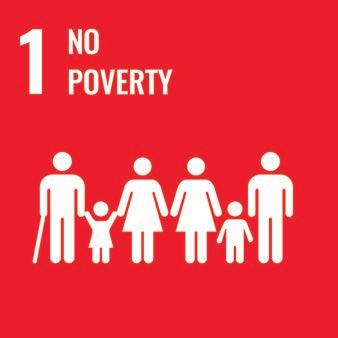
12
Improving smallholders’ livelihoods through agriculture and forestry
Increasing production and productivity to increase food security
Ten Years of Farmer Support
Training held by AKA Commercial in the shadow of a tree in Mozambique.
In Nepal, FFD has supported women fish farmers since 2013. In Chitwan province, women managed to establish three cooperatives, which constructed fishponds for carp farming. The ponds and the support to improve productivity of fish farming contributed largely for households’ nutrition as a protein source. Increasingly, when production is growing, it is being commercialized.


The area covered by fish ponds has increased; the majority of fish farmers now have three to four ponds compared with only owning a single pond at the beginning of the partnership. A fish shop has been established by the cooperative, providing a marketing channel for the farmers. The project integrated fish farming with pig farming and vegetable cultivation for additional income and the nutrition level of the families, especially women and children, has improved. A study conducted revealed that for every euro spent for the project, yielded a 0,34 euro profit.
“The women fish farmers in the Nepal Terai are struggling with the same question women entrepreneurs in developed countries struggle with: will I have enough time, and how do I balance the business with my family life and my household chores? At the same time their motivation to start fish farming related businesses is imminent. When asked what made them proud as fish farmers, they replied: ‘I can make my own income’, ‘I can have my own ponds and not work for others’ and quite strikingly, ‘We women are proud that we can do something on our own. We also pride ourselves on being independent and being able to build our identity in society’. One thing that is certain is these women will make it, because they believe and they can”, says Roseanna Avento, Finnish Fish Farmers’ Association twinning partner of Sundardeep Women Fish Farmers’ Cooperative, Nepal.

13
Women fish farmers of the Namuna group in Nepal share a bigger pond of 1,2 hectares.
The fish farming work, such as fish harvest with nets, is done by hand in FFD's project in Chitwan, Nepal.
Most of the fish is consumed within the household or sold fresh. For income diversification, now the women fish farmers in Chitwan area are also trained in solar drying techniques.
– Sundardeep, Nepal
NEPAL
Ten Years of Farmer Support
Horticultural products in Tanzania are consumed both domestically and produced for export. The FFD collaboration with the Tanzania Horticultural Association (TAHA) started already in 2013 in Zanzibar, where we promoted horticultural production. TAHA’s contribution to horticultural production has made Zanzibar self-sufficient in vegetables and fruits, that the flourishing tourist industry consumes in quantities. The collaboration continued in Tanzania mainland where we have contributed to TAHA’s quality systems and the GLOBALG.A.P. certification. We are also building a scheme to promote irrigation systems based on renewable energy. Since horticulture generates more than 1 billion USD on an annual basis for the country, the sector is important. Certification, quality, and logistics belong to the key issues for TAHA to continue building its competence.
NADO (Njombe Agricultural Development Organization) became FFD’s partner in October 2014, continuing the Finnish bilateral support for potato sector in the Southern highland area of Tanzania. More than 6.000 potato small holder farmers were trained in good agricultural practices, post-harvest handling (storage and processing), and marketing. in 2022, the collaboration expanded to an action-research project in partnership with the Sokoine University of Agriculture with EU-DeSIRA funding. Farmers want to test fruit trees and crop rotation according to the principles of agroecology. Also, conservation agriculture is tested for maize.
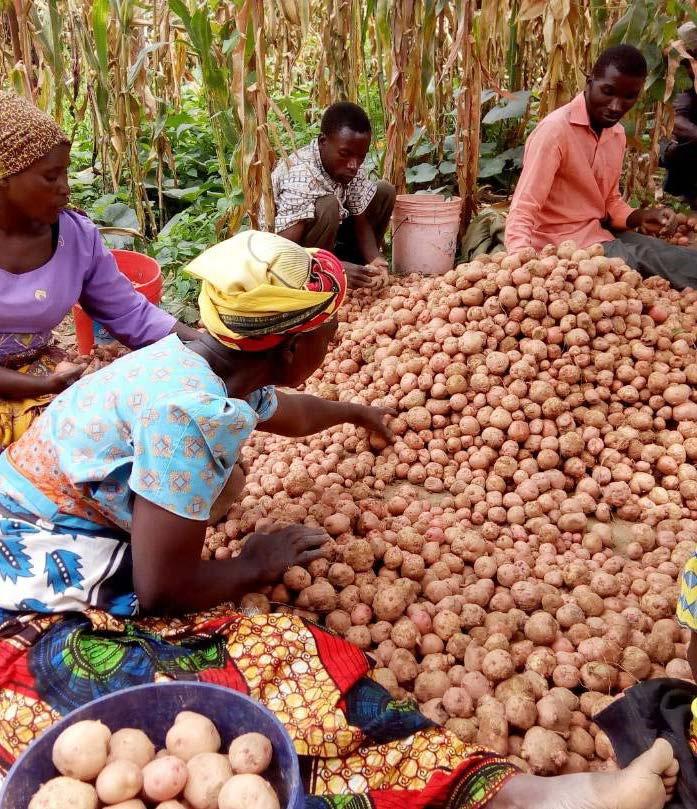
In Ethiopia, FFD supported different types of cooperatives and cooperative unions varying from potato producers to dairy farmers and honey and forest producers. The FFD support started in 2013 and reached to 2019.
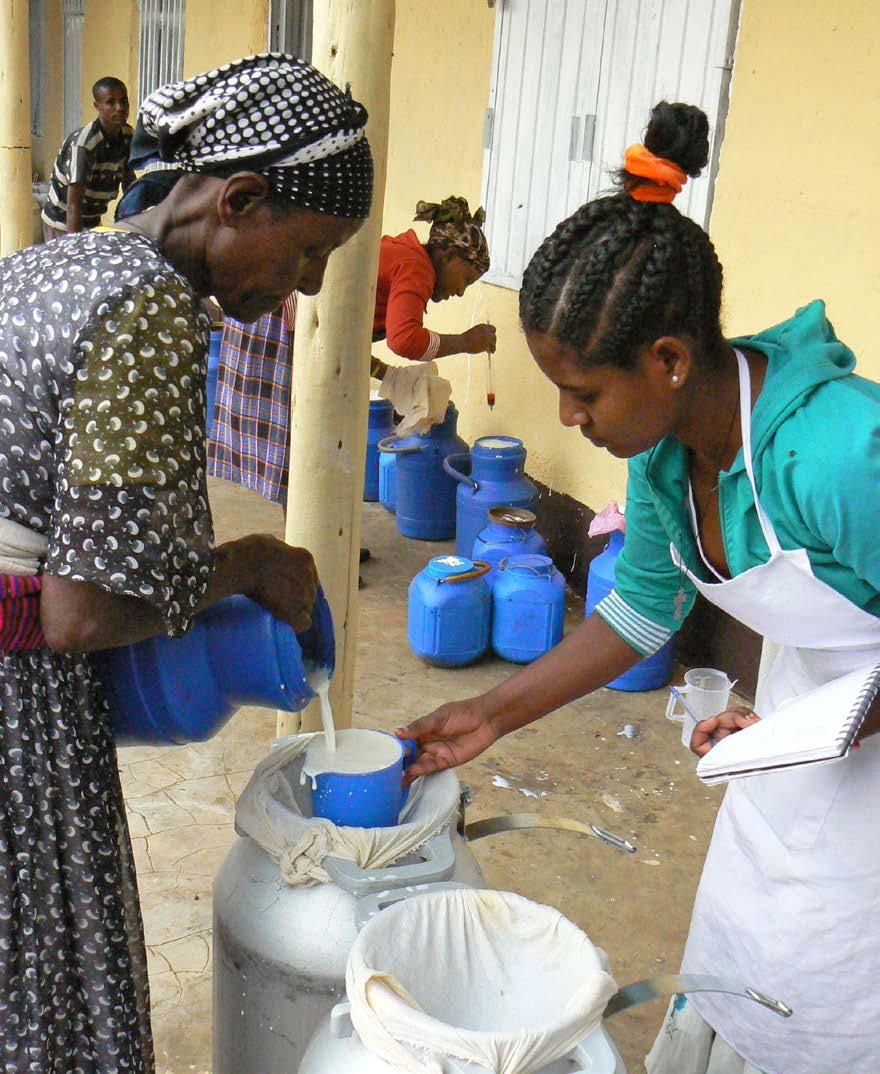
“The concerns are exactly the same for all dairy producers – in Finland and Ethiopia. Droughts create worry and everyone wishes for rain, fodder is too expensive, markets are not working, zoologic diseases are problematic, there are no sufficient veterinaries, and a flash can kill a cow in a pasture. This sounds very familiar.” — Leena Suojala, MTK twinning partner of Bahir Dar Dairy Cooperative and Deha Ansit Dairy Cooperative, Ethiopia
The 900 members of the
farmer group in Wanging'ombe were able to double their yields despite the region being affected by fungal diseases and wilt. This was achieved through the use of certified seed potato varieties, access to inputs, and training on good agricultural practices. Furthermore, revenues from potato sales increased by 25%, thanks to collective marketing and premium potato quality.
“Our income has increased significantly. We appreciate the support in grading, packaging and collective marketing, which has helped to reduce transaction costs, negotiate and get better prices”, says Melcksedeck Mandele, chairperson of one of the groups. – NADO, Tanzania
14
Faidika
TANZANIA
Fresh milk handeled by Bahir Dar Dairy Cooperative members in Ethiopia.
Ernest N’gumbi, the programme coordinator in NADO Tanzania, thinks that some of the best results of collaboration is the increase of production and its quality. The yield per hectare increased from 10 tons/ha to 25 tons/ha. Good yields have encouraged farmers to expand their potato fields from 0,5 acres to 3 acres. Measured in income, potato production now generates more than 1.100 EUR per year, which is more than doubled their revenues from potato farming. The income has been invested for example in school fees and uniforms, having electricity in their homes and other home improvements.
Ernest thinks that NADO has grown in competence and skills with the FFD support. “We can now present with confidence in agricultural events and for donors. NADO has become independent and well-recognized organization in Njombe region.”

In Zanzibar, TAHA linked farmers to traders and installed solar-powered irrigation systems, and were able to reduce the vegetable and fruit imports from mainland Tanzania to Zanzibar by 30% which benefitted 13.500 people. As a result of enhancing skills in sustainable agricultural practices and marketing and the use of irrigation, tomato grower Faki Hanafi is now earning 20 times more from the same fields. – TAHA, Tanzania
“One relevant outcome of the experience is the creation of the organic farming school for young members. We have over 40 young individuals who have graduated from the school. We are planning to continue teaching more youth about the organic agriculture tools. In the future, the plan is to sell this service to other organizations that are starting in the field of agriculture”, says Bairon Ramón Romero, technician, CAFESCOR coffee cooperative, Honduras.
HONDURAS
By focusing on inclusion and climate work, the cooperatives have managed to change attitudes and improve social status of women and youth: through trainings and awareness raising of 1.067 people, putting new policies in place in the cooperatives, and by creating an inclusive way of working. Women’s groups have created their own brand for organic coffee, established savings groups, and developed an organic agriculture school which supports producers in organic production practices. – Cafescor and Caruchil cooperatives in Honduras
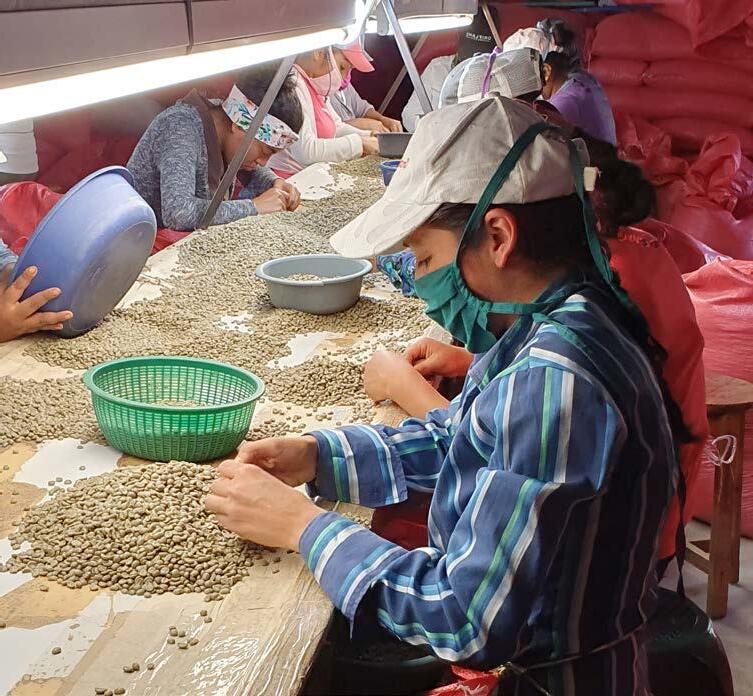
15 Starting from production
TANZANIA
Faki Hanafi inspecting crops in his field in Zanzibar.
Ten Years of Farmer Support
Sustainable Forest Management and Farm Forestry
Encouraging resilience, adaptation and mitigation through sustainable forest management and climate-smart agriculture
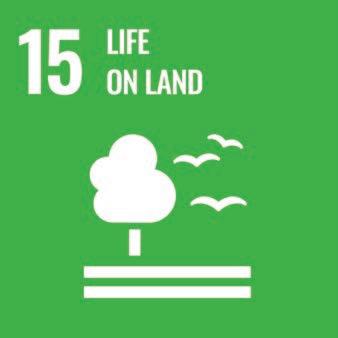

Promoting sustainable agriculture and use of forest to preserve natural resources
Forestry has always been an intrinsic part of Finnish farms providing fuel, income, and being a place to relax, hunt, and to collect berries and mushrooms. Thus, from the beginning FFD has supported smallholder forestry through several projects. The content and activities of the individual projects have varied depending on the national legislation and the local context. In some countries, forestry is very regulated, and the emphasis was given to non-timber forest products (NTFP). For example, in Tanzania and Vietnam, where the national legal framework allows smallholder forestry aiming at wood chip or timber production, there has been more focus on sustainable forest management and certification procedures. Tree nurseries seem often to provide fast income and financial sustainability for FOs and provide job opportunities for women and youth. Charcoal production which is contested by many as a non-sustainable production, can also be done sustainably when new trees are planted to replace the ones that were felled. Planted forests for charcoal production can protect natural forests which are important to conserve.
FFD has been supporting forest-related activities in Ethiopia, Kenya, Mexico, Nepal, Tanzania, and Vietnam. Our partners are sometimes working with smallholder forestry but normally also have activities on non-timber forest products such as honey, agroforestry.
“In FFD’s projects, it is not about helping the southern partners, but about cooperation, learning together and supporting their independent work.
It is baffling how similar the problems are in organizational development projects and in promoting the issues of forest owners both in Tanzania and here. Most of the time, problems are solved by simple means and collaboration between people. It has been great to be able to promote the association’s activities and operating methods with the people of Tanzania Tree Growers’ Associations’ Union (TTGAU). As a reward, I feel happy and satisfied, and I now appreciate my own operating environment here at home even more. I have also learned that simple solutions often apply here as well.” – Heli Mutkala, MTK twinning partner of Tanzania Tree Growers’ Associations’ Union, Tanzania.
In Kenya, the support to FF-SPAK aims at increasing profitability and resilience of farm forestry livelihoods. The farmers of Lima Linda cooperative, a member of FF-SPAK, explained how the collaboration has boosted their avocado production. They purchase now improved avocado seedlings from two certified model nurseries and manage them according to technical advice, which improves both the quantity and quality of avocadoes.
16
Zenbaba Union in Bahir Dar, Ethiopia received FFD support 2013-20. 32 cooperatives which produced both honey and acacia poles managed to increase their production, thanks to forest management advice, good seedlings, and joint marketing. The best achievement for Zenbaba Union was to get an approval by the Cooperative Promotion Agency to combine honey, charcoal, and pole production into the same cooperatives. This strengthened the financial stability of cooperatives considerably since one seasonal product doesn’t generate enough income to maintain the cooperative management alone.


“If a twin has a passion for sharing his or her experience, the locals can feel it. It encourages and challenges them to implement the activities. The twin acts as a supervisor, coach, mentor, and friend to their peers. It is not always easy to accommodate all these roles, but it is always rewarding.” Kalle Ikonen – FMA Varsinais-Suomi, twinning partner of Zenbaba Union, Ethiopia.
In Nepal, FFD has been supporting first the nine community forest user groups in Dang province and later channeling the support through ASEC, the cooperative which they established. The collaboration in the beginning focused on the capacity of the forest users, poor and disadvantage groups of the community. Now the support is focused on establishing businesses, preparing, and implementing a local level climate adaptation plan. The latest effort has been invested in the establishment of a sal leaf plate factory. This shows well how the basic skills achieved have created a foundation for more ambitious and market-oriented activities.
“Through the project the women forest users in Tulsipur, Dang got the opportunity to enhance their capacity and knowledge, gain experiences, and try their ideas. It is clearly visible in the community, and a large number of women of the project area are now in different leading positions: elected in local government’s body, in different local organizations, in forest user group’s working committee’s body, and many more. It is very clear that the project enhances the capacity of women as well as the forest user groups. As a result they have more income and their social status has improved”, says Kadel Biddya Raj, Project Coordinator in ASEC, Nepal.

17 Sustainable Forest Management and Farm Forestry
Eucalyptus poles of Ediget Berehbet cooperative, member of Zenbaba Union, Ethiopia.
In Kenya, FFD supports cooperatives of forest growers and small farmers to promote sustainable forestry and agro-forestry. The active participation of women in the management and operation of cooperatives has led to an increase in equality.
In Tulispur, Nepal, the community forests are mostly made up of sal tree (Shorea robusta) forests. Sal trees are used as timber and fuelwoods and its leaves are used for plates - like the hand made one Bishnu Pandey is showing.
In Vietnam, different cooperative alliances (CA) at the provincial level have received support since 2013 to strengthen forestry related activities. The forestry sector in Vietnam is as large as in Finland measured by GDP and offers interesting opportunities for smallholders. Traditionally, the cooperatives have focused on rice production and other agricultural products but not on forestry. In 2017, there were only 351 cooperatives with forestry activities, but at the end of 2022 there were more than 500. The FFD collaboration aimed at strengthening competence and skills of cooperatives to support forest related activities: through improved seedlings, nursery and forest management practices and finally, through forest certification. We also tested if the CAs could take a stronger role to sequestrate carbon through prolonged rotation period of woodlots. Linkages to academic research – the Hue University for Agriculture and Forestry, the Vietnam Academy of Forest Science and the Viikki Tropical Resources Institute – and the collaboration with Forest and Farm Facility have allowed us to be in the frontline of actors promoting integration of smallholders in forest value chain also at the national level.


‘‘Prior to the project, our family cultivated rice and a variety of flowers. We also grew Acacia trees and kept poultry beneath the forest canopy. Thanks to FFD, our family has started to keep bees, which gives us an additional income. We firmly believe that the integration of trees, livestock, and farming increase efficiency of our farm. The combination of poultry and bees under the Acacia trees has proven to be a symbiotic arrangement. The poultry benefits from termite insects as a food source and the Acacia flowers provide pollen for honey production. Looking ahead, we have plans to expand our beekeeping operations to further support our livelihoods and to help replicate this model for the benefit of others in our community”. Ms. Tran Thi Lan Sinh, farmer, Binh Yen village,

18
Quang Ngai province, Vietnam.
Ten Years of Farmer Support
With the help of mobile technology forest growers' cooperatives are now also able to monitor the results of field measurements and the growth of the carbon stock in their forests themselves. Thuy Phuong Cooperative members measuring growth in Hue, Vietnam.
Dr. Ho Ha from Centre for Climate Change Study in Central Vietnam - CCCSC in Hue University of Agriculture and Forestry at a local tree seedling nursery.
Women forest users taking part in pole preparation in Quang Ngai, Vietnam.
In Finland, FFD has been a part and parcel of process generating educational knowledge on global forestry through a national Forest Quiz (Metsävisa, Skogsnöten) since 2018. This quiz is designed for secondary school pupils who are interested in testing their knowledge of forests and forestry. In 2021, on Quiz’s 40th anniversary, FFD prepared a part of the quiz focusing on tropical forestry that the 20.000 participants competed in. The examples and questions derived from the FFD partner organization and our experiences with them. From 2023, FFD and the Finnish Forest Association produce educational material to demonstrate the different ways through which forests contribute to human beings and our welfare in different parts of the world.
“In cooperation with FFD, the theme of global education is addressed, where forests and their impact on people’s lives in different parts of the world have been at the center. In addition to forest knowledge, FFD has highlighted the global importance of the work of Finnish forestry experts. In the Forest Quiz, young Finnish people get to feel part of a wider global community and learn how small actions can have big effects on the well-being of forests and people” says Sirpa Kärkkäinen, The Finnish Forest Association.
UWAMIMA – Tree Growers Association and their Timber Yard
UWAMIMA in Matembwe, was one of the first partners of FFD which inherited the collaboration from MTK in 2013. In the beginning, the partnership was focused on forest management practices, harvesting practices, and management of tree nurseries. When the quantity of production was increasing, UWAMIMA suggested a construction of a timber yard to dry sawn planks centrally and market them jointly. The idea included also an office where the buyers could pay levies and taxes for the local government.

The timber yard was operationalized in 2018. In the beginning, there were serious challenges to continue with this initiative due to an extraordinary drying levy by the regional government and some competing initiatives. Nevertheless, UWAMINA managed to overcome these threats.
Now, the yard attracts people from inside and outside Njombe to do forest business. Most important is that women have started in timber business, which previously was not common in the area. Availability of timber in the yard has made it easy for women to engage in the timber value chain - in the past they would go around in the villages searching for timber.
“Tree growers are now adding value to their trees and sell timber instead of standing trees, thus increasing their share of the value chain. The timber yard has increased the efficiency of the district council to collect levy as it now collects them in the office at the yard which saves time. The timber yard has improved the capacity of UWAMIMA to provide services to members and communities in general. This also strengthens TTGAU as a union”, says Kastory Timbula, CED, Tanzania Tree Growers’ Associations’ Union, Tanzania.
19
Sustainable
Forest Management and Farm Forestry
Ten years of farmer support
NEPAL
In ASEC, Nepal, more than 1.200 female forest users have learned about women's rights on natural resources, leadership, gender equality and violence against women. 300 of them continued training through community learning (CLAC), which is proven to be an effective way of changing traditional beliefs and concepts on i.e. women’s role at community level. Women have visibly transitioned from shy observers to confident actors in society by speaking for themselfs and defernding their views.

– ASEC, Nepal
Tanzania Tree Growers Associations Union (TTGAU) was founded in 2017 by the Finnish bilateral project PFP. The vision was to establish a national organization for smallholder forestry based on the Finnish MTK model to represent and serve farmers who want to invest in tree growing. Southern Highland area is well suited to grow Eucalyptus, Pine and Acacia. Today, FFD partners with TTGAU to facilitate farm and forest farmers to undertake research on the impacts of climate change on means of livelihood through the EU-funded action research (FO-led-RI) with NADO.
In Latin America, FFD at first supported forest management in Mexico, and then continued with bee-keeping and other agricultural production in Northern Nicaragua. Most recently, focus was on climate resilient coffee production in Western Honduras in partnership with Trias, our Belgian sister organization.

ETHIOPIA
Zenbaba Union has worked to increase income and skills of their members. In 2018, 8.581 farmers' income incresed through charcoal, timber poles, seedlings and honey sales. Furthermore, a forest management plan was developed for 500 ha increasing the area under sustainable forest management.

20
Farmers of COSMUDESOM cooperative in Nicaragua together with the Finnish twinning partner Ari Seppälä.
“‘Fumar’ was the first word I learned on the Nicaraguan bee-farm. The shout which was slightly alarming and partly dictating made the colleague with a smoke pot fume more smoke to the beehive. I was about to start a queen-raising course in Madriz, located in the northern Nicaragua near the Honduran border. Even though we did not touch the hives, the bees attacked us. These bees are Africanized, and they are also called killer bees. You need to use so much smoke that it feels like being in the middle of a forest fire. But this is exactly the purpose. It makes the bees leave their hive and look for honey. It calms them down and makes them become docile. After an aggressive start the training continued as planned and it seemed that the reputation of killer bees was slightly dramatized.”
“One of the results from FFD support, is the extension of bee-keeping training to other municipalities beside Somoto, where it started with the project. For example, to the municipality of Nueva Segovia. Today, COMJEMURA is a beekeeping icon at local and national levels; thus, they are giving technical assistance to other cooperatives. This is an extra service and income for the cooperative”, says Oswaldo López Nuñez, evaluator of the FFD Nicaragua project.

Lima Linda cooperative sold 6.500 kg for export in 2019, and in 2021 they managed to sell 16.500 kg collectively, even though some farmers still prefer to sell directly to middlemen for quick cash. More avocadoes sold to export market means more income for families. – FF-SPAK, Kenya

21
Ari Seppälä, The Union of Beekeepers, twinning partner of COMJERUMA, Nicaragua.
Beekeepers of COMJERUMA cooperative in Nicaragua.
KENYA
Quality, Quality, Compliance
Strengthening agriculture and forest production into profitable business
Improving production and post-harvest practices along the value chain to reduce food loss
Market access, value addition, marketing and branding significantly influence the potential profitability of agricultural producers. Cooperatives and other forms of coordinated commercial entities are established to achieve the necessary economies of scale for improved market reach. As a result, initiatives that emphasize product quality, quantity, and strategic market penetration have remained integral to FFD’s partnership approach with collaborators in the global South from its beginning.
“Cooperatives are an important form of economic and social activity in rural development. It promotes financial inclusion, efficient use of resources, equality and sustainable development. Coordinated, commercial action through cooperatives has proven a powerful approach also in FFD projects.” Mari Kokko, Managing
 Director of Pellervo Coop Center
Director of Pellervo Coop Center
The approaches chosen, depend on the market that farmers intend to pursue. Export markets often provide more lucrative opportunities, but they come with strict compliance requirements. Farmers can see them desirable, but the strict rules can lead to disappointments or even financial losses. Certification procedures are increasingly complicated since customers in developed countries want to achieve multiple objectives through a certification. A third-party verification audit costs often fall upon farmers. This needs to be considered, when assessing the feasibility of entering a certification system. For local and domestic markets, other types of quality procedures can be a solution. Peer-guaranteed systems (PGS)
have been explored to give recognition by local buyers while keeping the costs for verification at a reasonable level.
Ensuring a consistent quantity can also become a challenge. Larger buyers normally demand a steady supply of a consistent quality for a longer period of time. This requires solid coordination by the cooperative or farmer-driven company. If middlemen offer good prices at a farm gate, it can lead to a situation when farmers sell their produce without respecting the joint commitment. Synchronizing production can also present a challenge. Crop calendar among farmers is a tool to avoid that all yield matures simultaneously, which can lead to surplus production in one week and inadequate supply the next one. This phenomenon needs particularly attention with perishable value chains, even if it can occur for any production group.
The projects in which FFD has been promoting certification or quality procedures vary from horticultural value chains to tree nurseries, honey production and forest management. Practically with all our partners, some of the activities are directed to quality and quantity, and how they can be improved, reported and verified.
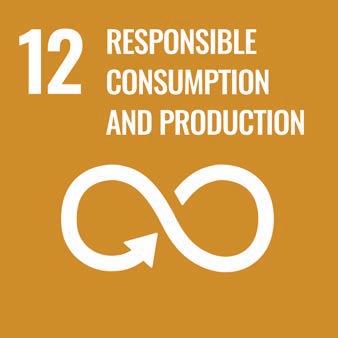
22
Ten Years of Farmer Support
Quality, Quality, Compliance
Through the collaboration with FFD which focuses on quality systems, TAHA (Tanzania Horticultural Association) trained and licensed 15 Agronomists on GLOBALAG.A.P. standard. These agronomists can help farmers to apply practices which comply with the certification system. The farmers who have received the certification, get a better price in the market. More than 3.000 farmers were trained on GLOBALG.A.P. standard, out of which about 500 farmers received GLOBALG.A.P. certificates for various export value chains to the EU and US market.
The TAHA’s project coordinator stresses the importance of certificates for farmers. It is needed to ensure access to the EU market, but certified products also get a better price. Farmers certification impelled several buyers and exporters in the sector as a result of massive changes on the export volumes. In 2022, Tanzania exported 663 tons of vegetables worth USD 6.364.000, which was six times more than the year before.
ecological point of view. Farmers are trained in how to manage avocado trees. Nurseries to grow better quality seedlings allow farmers to have seedlings of better genetic material that are disease-resistant and produce avocadoes which the market desires. The cooperatives facilitate access to international markets and collective bargaining. Presently, the farmers sell their avocado produce at up to 75% more as compared to selling them individually at the local markets.
“Before the project was implemented, we believed culturally that the beekeeping was a work for men because it’s too hazardous for women. However, with the project we had an intersectional gender equality component, which taught us that it’s not good to apply something based on cultural belief. It’s necessary to make a diagnostic and research before making assumptions. Today, some of our best beekeepers are women, who are well-organized, their beehives are clean, their product has excellent quality and these women exhibit initiative for growth. Furthermore, they are teaching other women to be beekeepers”, says Ramón Ivan Beltrand, project coordinator and currently advisor for Comjeruma cooperative, Nicaragua.

The two cooperatives Lima Linda and Agrifruitnuts supported by FF-SPAK in Kenya, were founded since farmers wanted to participate in the lucrative international avocado trade. In 2022, the cooperatives already had more than 1.700 members. Integrating fruit trees into their farm is also beneficial from an


23
Zacharia Kiputa, SEMA project coordinator, TAHA, Tanzania.
COMJERUMA beekeepers in Nicaragua.
Avocado farmers in Kenya and Tanzania are trained in farming practices and acess to markets.
The Tanzania Horticultural Association - TAHA farmers who have received the GLOBALG.A.P. certification, get a better price for their produce in the market.
From Grassroot Level for Global Influence – Climate and Food Systems
Encouraging resilience, adaptation and mitigation through sustainable forest management and climate-smart agriculture

Promoting sustainable agriculture and use of forests to preserve natural resources
Climate resilience holds a significant role in all FFD projects, but the projects located in Honduras, Uganda, and Tanzania have climate action as their key objective. In general, all our forest-related projects make substantial contributions to climate action, as planted trees not only sequester carbon and mitigate erosion but also offer shade for specific crops protecting them against too high temperatures. Close relations with research institutions ensure that our targets are science-based even if the science should not overrun farmers own, traditional knowledge
The AFOLU-sector (Agriculture Forestry and Land Use) is an important source of greenhouse gases (GHG) but also one of the few sectors which can increase its mitigation potential through biological processes. While all the farmers need to adapt to climate change, they can also contribute to mitigation. FFD has developed a small-holder driven carbon sequestration scheme in Vietnam and has studied different type of models in use. While there are several types of models being developed, inclusion of smallholders as equal partners in them, remains a challenge.
Carbon markets have generated plenty of interest among tree growers and FFD established its carbon scheme. This trial has demonstrated different kinds of challenges that smallholder-centric mitigation projects aiming at the carbon market can face. There is still a long way to ensure that smallholders who plant and manage their trees in developing countries can fully benefit from the carbon market but FFD together with other agri-agencies look for ways to facilitate the integration.
In climate action, we also want to help farmers to raise their voices at the higher level – among the local actors but also at the national and international levels. The impact of climate change is already being felt by farmers and they are still largely excluded from climate finance. We believe strongly that this requires more attention but even more, urgent action.

“From the FFD project we have learnt that forest users really want to contribute to the climate and environment sector, and along with this they also need to start some agroforestry business for their financial sustainability”, says Kadel Biddya Raj, Project Coordinator at ASEC, Nepal.

24
Ten Years of Farmer Support
Members of ASEC's Mahalaxmi and Ashwara Community Forest User Groups next to the new dam. During the rainy season, water is collected in the dam, which can be used to fight forest fires and as irrigation water for about 100 households in Tulsipur, Nepal.
In Kenya, the FFD projects focus on climate change adaptation, sustainable and resilient agricultural practices as well as equality and inclusion.

In Southern highlands area of Tanzania, FFD is supporting NADO and TTGAU to test integration of trees in their farms. This is done in collaboration with the Sokoine Agricultural University which supports farmers to define their research questions and collect data. Using the AgriCord’s Building Resilience Tool, more than 300 farmers were consulted in five districts to define farmers’ climate priorities for research. Among these, the farmers included: biochar production and testing trees with maize and beans, bee-keeping experiments, management alternatives for small woodlots and management alternatives for local tree species at nurseries. Farmers would also like to explore options for the prevention and monitoring of forest fires.
“Droughts, but also heavy rains are among the climate challenges that farmers face in their work. Forests and trees are important to prevent erosion. Even individual trees can make a difference in soil fertility. Thus, we should plant more trees in the fields. In Kenya as in Finland, forestry is a cross-generational endeavor, which I tried to transfer to my peers in Kenya. Regeneration of forests and thinning of young forests contribute to the next generation. Nurseries and their certification were one of the best and most concrete achievements of the project. Thousands of seedlings produced in the nursery build faith in the future.”
Mikko Syri, MTK twinning partner of FF-SPAK, Kenya
The active involvement of farmers on action research initiatives has become increasingly common in Europe. The EIP-AGRI Network (now under EU CAP Network) with its ‘Agricultural Knowledge and Innovation Systems’ (AKIS) not only considered the involvement of farmers to address future challenges at the national level, but also the sharing of experiences and know-how among European farmers and organizations supporting farmers. In the Global South, improving Farmers’ capacities for sustainable climate-resilient crop production intensification and diversification, is often hindered by complex “technology-creation/transfer” processes. Complex agroecological concepts usually require numerical or textual data which can become entre barriers for farmers with low literacy level. Thus, locally tailored strategies are needed to allow their participation.
“The potential for potato yields in the Southern Highland area in Tanzania from the present 7 tons/ ha is up to 50tons/ha. Climatewise this would be a great achievement: producing seven times more per hectare with the same inputs and labor. Potato is a great crop whose climate footprint per kilogram is one of the lowest and yields per hectare can be one of the largest ones. It has been a pleasure to work with NADO’s team on this and I still keep the contact with Ernest and Faraja. The twinning has brought me different perspectives on my life, humbleness, and thankfulness.” Juha Sohlo, ProAgria twinning partner of NADO, Tanzania

25 From Grassroot Level for Global Influence – Climate and Food Systems
Farmers of the Faidika farmer's group during post harvest training sorting the harvested potato crop in Kanani village, Wanging'ombe, Tanzania.
Ten Years of Farmer Support
In Uganda, we support two cooperatives: one which supports farmers cultivating coffee, potatoes and maize, ZODFA, and another one, Nyaravur, which is a savings and credit cooperative. One of the critical actions strengthens linkages with credit options which support climate resilient activities. With another funding, FFD shares the lessons learned with other actors at the national level as a part of implementation of Uganda’s national food system strategy.
Land use planning and management is in the central role in the FFD collaboration In Northern Tanzania with MVIWAARUSHA, Pastoral Women’s Council (PWC) and Ujamaa Community Resource Team (UCRT). The aim of support is to improve land use management and climate resilience in a coordinated manner. While UCRT focuses on land use planning and management, PWC supports inclusion and empowerment of women and MVIWAARUSHA provides services for value chain development. Trias is our close sister in arms to carry out the activities and to ensure coordination with other NGOs in the region.
Acting Local – Aiming at Systemic Change
While a lot of our work focuses on a local level, we realize that the global food system needs to be transformed and climate change imposes changes to all farming. Thus, our approach can be synthesized by the motto: Acting for farmers at the local level but aiming at transformative changes at a systemic level.
The needs, aspirations but also limitations by smallholder farmers are often very different from larger farmers. They represent, nevertheless, a large group and in some developing countries produce up to 80% of food. The sector offers also an important source for jobs even if younger generation doesn’t always see it as attractive.
Larger impact is sought through the collaboration with other agri-agencies, which are members of the AgriCord Alliance and with the Forest and Farm Facility (a partnership between FAO, AgriCord, IUCN, and IIED). FFD has been coordinating the AgriCord climate action since 2018. One of the most concrete action is the development of the Building Resilience toolkit (BR).


26
UWAMIMA members in their tree nursery, Tanzania.
Droughts, but also heavy rains are among the climate challenges that farmers face in their work. Forests and trees are important to prevent erosion.
From Grassroot Level for Global Influence – Climate and Food Systems
AgriCord Building Resilience Toolkit –Guiding Farmers in Locally-led Adaptation

Building Resilience Part I aims at guiding farmers through the effects of climate change in their surroundings to identify their vulnerabilities. Consequently, farmers design adaptation activities which are based on their priorities. In the process, they learn to understand and deal with climate change which empowers them as independent climate actors. Building Resilience Part II focused on farmers’ organizations and allow the FOs to build a climate resilience plan based on their members’ needs. Now FAO in Forest and Farm Facility (FFF) program has adopted the toolkit as integral part of its climate work.
So far, more than 200 farmers trainers in 28 countries have participated in the BR Training of trainers to learn to facilitate this process. At the beginning of 2023, more than a thousand farmers had been empowered in the BR workshops in 6 different countries.


“No other training or tool has brought such clarity to the adaptation related concept, such as exposure and climate risk, and what it means to farmers” Geofrey Bakanga, FAO facilitator for Forest and Farm Facility program in Tanzania.
What makes the AgriCord Building Resilience Tool so special?
Adaptation planning is often considered technocratic, and the process externalized to consultants. The AgriCord Building Resilience approach is different: It puts farmers and other smallscale producers in the center of climate action. The methodology simplifies concepts and highlights farmers’ expertise in assessing climate risks and designing adaptation action relevant to their own production, value chains and assets. Farmers’ organizations also contribute
to constant improvement of the toolkit through training evaluation forms and other feedback. “The Building Resilience workshops provide small-scale producers with a list of adaptation actions that are feasible to implement and address all their main climate concerns. This creates hope amongst the hardships, and gives direction to collective and concrete climate action in farmers’ organizations”, notes Noora Simola, forestry and climate expert of FFD.
27
Building Resilience training of trainers workshops in Nepal and Vietnam.
Inclusion – Women, Youth, People with Disabilities and Vulnerable Groups
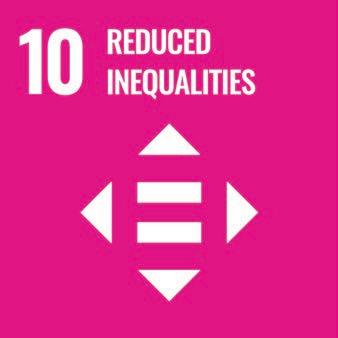
Actively promoting and supporting gender equality and empowering women and girls

Supporting inclusive well-functioning farmers’ organizations with strong voice

Women have always contributed strongly to Finnish society and lately, they have taken a predominant role also in politics. FFD has also given a strong role to women in their projects and promotes strongly gender equality and inclusiveness, and encourages and facilitates women’s participation. Since normally they have the main responsibility to take care of their families, it is better to organize events and trainings close to homes. Widows and single mothers can be discriminated against in several cultures, and it is important to allow them to become members of cooperatives or associations.
Gender equality and inclusiveness should not mean focusing only on women and girls. In FFDs work we raise awareness and embrace inclusion, equality, diversity and social justice of women, youth, people with disabilities, indigenous peoples and other vulnerable groups. Including men in this work is crucial, who can encourage community members by their example. A family is like a business that is run together. Utilizing everyone’s input and know-how contributes to a good result and the result should be shared equitably. Women’s education and increasing independence can seem threatening to some men but neither party should feel subordinated or that their status is threatened.
“In the Kenya project, the trainings are common for men and women - this is supported by the fact that when trained together men notice women have rights, and women learn about their rights. The trainings have been very important to the women, as they also learn how to take care of their own farm and gain new knowledge. A group of widows and single mothers explained that since the husband does not take up their time, they have more time to take care of common issues in the cooperative and thus they can excel in their duties.”
Sirpa Kärkkäinen,
The Finnish Forest Association, twinning partner of FFSPAK, Kenya
28
Ten Years of Farmer Support
Theresia Kieri is manages the 2 hectare farm herself, as her husband is sick. In the FFD-supported project in Kenya women are involved in farming and land ownership related decision-making.
The FFD twinning evaluation in 2017 explains the role of twins on gender work: “Because the issue of women’s participation has been put at the centre of every awareness creation events, significant attitudinal change has been achieved. The Finnish experts that came through the twinning arrangement were themselves working in the forest management associations, thus have practical knowledge and experience. Their contribution has been oriented to practical aspects of forest management and that has helped a lot.”
As the FFD action is based on human rights, we study and understand vulnerabilities of different groups, sometimes based on their social roles or physical disabilities. Together with our partners we identify which instances are responsible for protecting their rights, thus being duty-bearers. We recognize that women and girls often have different social requirements and tasks which we need to take into account to engage them in activities. We challenge the norms in different way and use our women twins as role models to show how women can be recognized as an expert and have an important role in organizations.

“The project pioneered to combine the modality of technical training for young people to structuring an associate modality. In addition, it had a gender equality structure for young girls and boys’, members of the cooperative. Amazingly, parents didn’t oppose to this structure, since in the rural area this is sensitive topic”, expressed Oswaldo López Nuñez, evaluator of the project. COMJERUMA, Nicaragua
“Mozambique is a country with bountiful natural resources, but the traces of the long civil war are still tangible. It was difficult to get Renamo’s representatives into the project activities. One of the critical questions for the development of the
Farmers feel more confident and empowered and participate actively in local governance. The individuals are engaged to change their communities. The women are strengthening their position within the community and the forestry sector. Gaining confidence through trainings and collective action, you now find women in leadership positions both in the CFUGs, the cooperative and enterprise committee as well as in the municipality and regional council. – ASEC, Nepal

country is, how to include people from different political backgrounds into the same tables. Leader collaboration as well as FFD projects can be part of the process to heal wounds. EU is supporting Leader-pilots in post-conflict areas to mediate the tension between different groups in the society, like in Northern Ireland, the Balkans, and in Georgia.”
Petri Rinne, Joutsenen Reitti
twinning partner of AKA, Mozambique
“A core result of the project is the empowerment of women entrepreneurship, with whom we are implementing a model of coffee business. They don’t only sell the coffee cherry, now they also sell the grounded coffee. With the mini-grants given by the project, women got a fund to buy basic equipment to start their business. In addition, we are helping them to sell their own coffee brand under CARUCHIL label. Twenty women are members of this initiative”, says Darwin Johan Lazo, Project Coordinator, CARUCHIL, Honduras.
29
Women are encouraged to take strong roles in the project and in the community, and project activities are organized close to the homes and during times best suitable for women participants.
Coffee producers of CARUCHIL cooperative in Honduras in training on gender and inclusion.
NEPAL
Connecting People –Peer Support through the Twins
We were positively surprised by the numerous texts that we received, when requesting our expert twins to write for this publication. We could only take a section of written contributions onboard but the eagerness of our twins to share their stories demonstrated how important the experience has been for them. The twin approach is not only a good way to get the best Finnish expertise to support our partners, but it also gives a lot to the Finnish twins. All the texts in Finnish can be found on our website www.ffd.fi
Systematically, all the twins testify that they remained surprised by the similarities in the key issues that the farmers and forest keepers have in different countries. Farmers worry about the weather and rains, they ponder which crops and varieties they should plant and in which market they get a fair price for their efforts.
The most significant achievement was probably that these communities together founded a larger community, in the name of which they now operate. This ASEC community educates and advises its members to use their forest areas sustainably and increasing income opportunities for women. Twinning partner Jukka Hintikka visiting ASEC in Tulsipur, Nepal.

Jukka Hintikka tells that one of the best things that he has gained through the twinning, was the friendship established with the local partners. The experience gave him a better and more versatile approach to look for solutions in his job in Finland. During his first trip to Nepal, he noted that many of the members of ASEC were women. Therefore, on the second visit, his female colleague accompanied him to Nepal to facilitate the dialogue with women, while Jukka took care of the contacts with the local authorities being predominantly men.
“My best contribution for when training a harvesting group for the cooperatives. The chainsaws that the cooperatives had were not used because they didn’t work for Nepalese trees. I understood quickly that the problem was that they had not been sharpened. I explained that there is a need for a file and that the chainsaws need to be filed regularly, which nobody had told them before.”
Jukka Hintikka Savotta FMA –Nepal ASEC

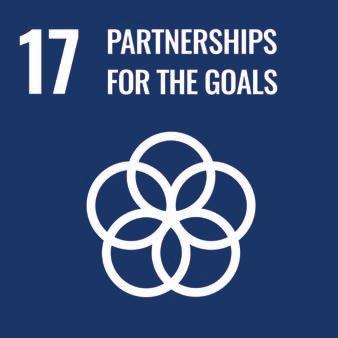

30
Multiplying impacts through networking and joint delivery
Supporting member-based democratic organizations
Ten Years of Farmer Support
Forestry partners from Vietnam, Ethiopia and Tanzania visiting Finland in 2017.
“I am so glad to be able to share my experience on sustainable farming with the Tanzanian partners. This is a dream that I have had since my childhood. It has been a surprise to me that the challenges in Finland and Tanzania are so similar. Peer-learning is the best way to solve challenges. I am eagerly waiting for my first visit to Tanzania in December 2023. I hope that in the future I can invest even more of my time to support farmers in developing countries. I trust that the dreams which are spoken and written will one day be realized.”

Eija Hagelberg, Carbon Action, Tanzania - NADO
It is rewarding when you can share information that is useful to others says twinning partner Juha Sohlo. Here Juha together with the NADO team in Njombe, Tanzania.


“Development cooperation is a long-term endeavor and requires solid and frank dialogue between the partners on the objectives and means to achieve them. If sometimes activities don’t advance, there is a need to ask if there is something that we should be aware of. It has been a privilege to act as a twin and I truly hope that my contribution has benefitted the farmers in Tanzania.
The best moment was in Pemba, which is one of Zanzibar’s islands, where I was proposed. I could have become the seventh wife of that gentleman.” Pirkko Suhonen, Garden Women’s Association – Tanzania Horticultural Association
VIETNAM
The first PEFC group certificate was obtained by the Thua Thien Hue Cooperative Alliance TTHCA in Vietnam in 2020, with 122 households and 850 hectares of planted forest. The certificate assures sustainable forest management of the area, and also gives a better price for the products. – Thua Thien Hue Cooperative Alliance TTHCA, Vietnam
Pirkko Suhonen with TAHA farmers in their fields, Tanzania.
The FFD Team
A development practitioner with more than 25 years of experience in different continents and organizations on agriculture, forestry and private sector support. She has been the chair of the steering committee for Forest and Farm Facility for three years and she is presently an AgriCord Board member.
Riikka
A meticulous specialist on holistic agricultural development, ensures quality and correctness of FFDs projects and finances.
Jenny Öhman
Agriculture and Gender Expert
An expert of agroecology and horticulture making sure that your approach is inclusive and gendertransformative. Communications coordinator, smoothly guiding FFDs twins to target their contributions for our partners.
Noora Simola Climate and Forestry Specialist
A brain behind our climate work both on mitigation and adaptation, who passionately dedicated her time to look for better options for climate resilient practices in forestry.
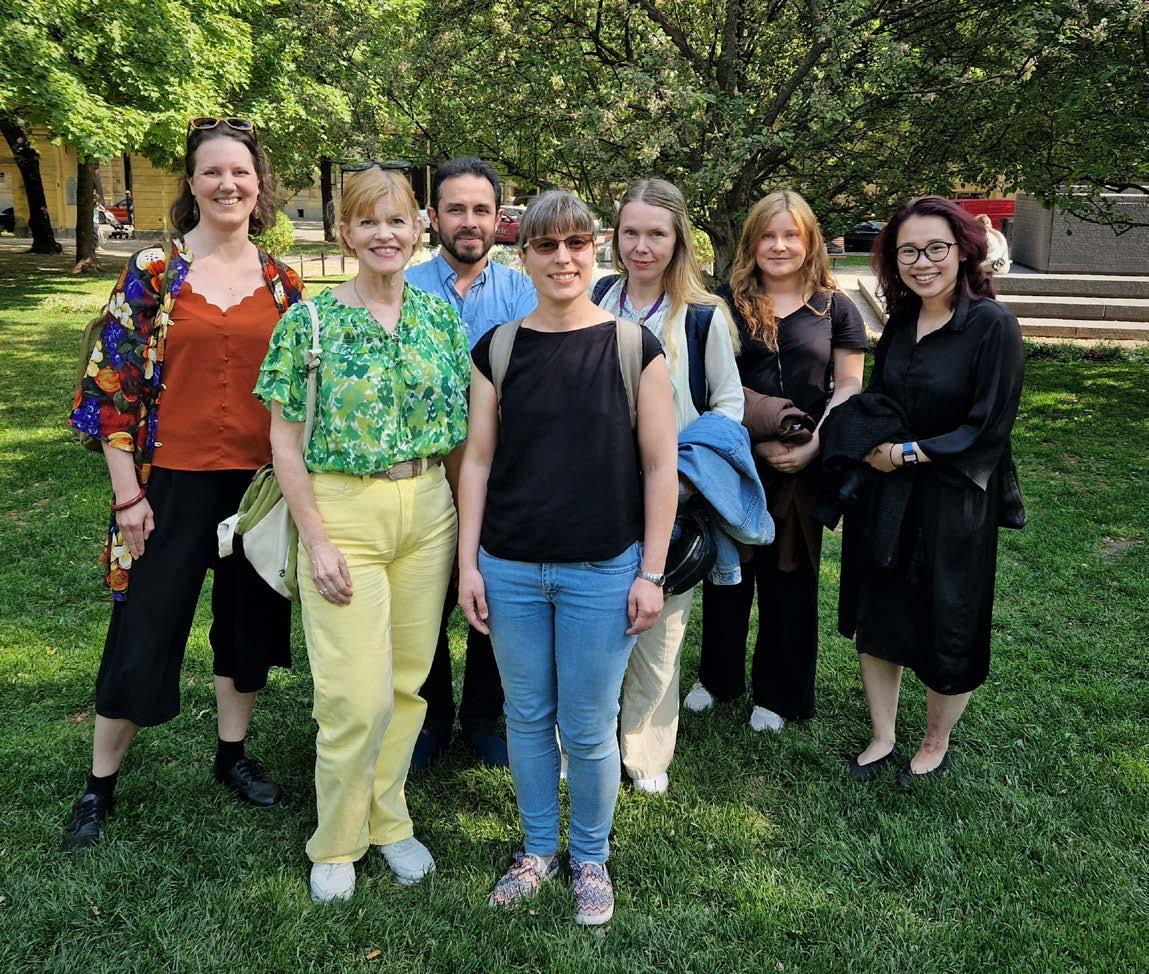
Adrian Monge Monge Climate and Adaptation Expert
A forestry and climate expert who also keeps our gender balance. Constructive and academic thinker who is also teaching in Viikki Tropical Resources Institute of the University of Helsinki.
Elianchea Shanga
Climate Resilience Officer, FFD Focal Person in Tanzania
Our Southern expert, who has a solid background in programme management focusing on private sector development, climate resilient agriculture and horticulture.
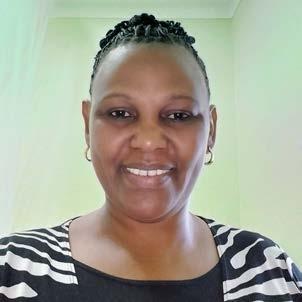
Chi Bui Forestry Expert
A forestry expert who works also on dissertation at Viikki Tropical Resources Institute.
Janita Jamalainen
Project Coordinator
Janita made her master’s thesis on Building Resilience tool and now coordinates our collaboration with the Finnish Forest Association and helps out with the FFD 10th year anniversary.
32
Tiina Huvio Executive Director
Nieminen-Kwatemba Project and Finance Manager
The FFD team in September 2023 is polyvalent, competent and ambitious.
The FFD Board consists of the representatives of our founding organizations: Juha Marttila, Chair/MTK, Mats Nylund/SLC, Petri Pitkänen/Pellervo and Merja Keisala/ProAgria completed with Juha Ruippo/MTK and Dr. Kaisa Karttunen.
We also recognize all the people who have participated in our path. Seppo Kallio, as our managing director in 2015-18, and in our board the previous members: Juha Korkeaoja, Holger Falck and Martti Asunta. FFD has also had several experts and interns contributing to its work: Salla Mikkonen, Liisa Kulta, Annick Huyghes Mauro, Anthony Starr, Eija Mustonen, Marika Malinen, Matleena Vuola, Sofia Itämäki, Atte Penttilä, Iida Viholainen, Eelis Hemberg, Miquel Saludas, Caroline Clément de Colombières, Eeva Mäkinen, Kirsi Kaikkonen and José Valdivia. In addition, we have worked with numerous volunteers and students through the years.
In memoriam of Benjamim Nascimiento and Iida Viholainen who passed to eternity in 2023.
FFD has developed and put in place the following strategies and policies:
- FFDs Strategy and Vision 2019-2025
- FFDs Monitoring, Evaluation and Learning Policy
- FFDs Gender Equality Policy
- FFDs Anti-Corruption Policy
- FFDs Ethical Guidelines and Guidelines for Prevention of Sexual Harrassment, Abuse or Exploitation
FFD has been part of and/or published the following publications:
- Deresse, Palacios & Tadess (2014). Study on potential and diversified income sources related to forestry and options for their management, Ethiopia, MTK/FFD publications.
ISBN 978 952 9733 32 3
- FAO & AgriCord (2016). Strength in Numbers: Forest and Farm Producer Organizations – Operating Systems for the SDGs. https://www.fao.org/3/i5765e/i5765e.pdf
- FAO, SYKE & FFD (2017). Smallholder forest producer organizations in a changing climate - Forest and Farm Facility. https://www.fao.org/3/i7404e/i7404e.pdf
- Simola N. (2018). Carbon stocks and sequestration potential of smallholder Acacia hybrid plantations in Hue, Vietnam. Master’s thesis. University of Helsinki, Finland.
- FFD, University of Helsinki VITRI & VCA (2019): Study on carbon sequestration in smallholder woodlots: Economically viable forest production in smallholder plantations of Central Vietnam in the context of developing carbon markets
- AgriCord Building Resilience Toolkit, Part 1 (2020) : FOs Assessing Climate Risks and Designing Adaptation, AgriCord Alliance
FFD as an organization has taken its place and done successful work in many developing countries at the producer level, both in food security and in sustainable forestry.
– Seppo Kallio, Director of International Affairs of MTK and Executive Director of FFD - emeritus
- Bui C. (2020): Financial Sustainability of PEFC Group Certification for Smallholder Farmers in Central Vietnam. Master’s thesis. University of Helsinki, Finland.
- Suoninen S. (2020). Puunkorjuupalvelun toimintaedellytysten arviointi Nepalissa. Opinnäytetyö/ Metsätalouden tutkinto-ohjelma, TAMK.
- Arvola A., Ha H., Kanninen M., Malkamäki A. & Simola N. (2021). Financial attractiveness of wood production in smallholder plantations of central Vietnam in the context of developing carbon markets, Journal of Tropical Forest Science 33(2): 137–148 (2021) https://doi.org/10.26525/ jtfs2021.33.2.137
- Humalisto N., Huvio T. & Simola N. (2021). Metsät päästökaupan kiistakapuloina, Ilmiö 13/4/2021 https://ilmiomedia.fi/ artikkelit/metsat-paastokaupan-kiistakapuloina-ehtoja-reilulle-hiilikompensaatiolle
- Simola N. & Vuori K. (eds.) (2021). Forest and farm producer organizations building resilience. Strength in numbers and landscapes. Global findings from case studies. Forest and Farm Facility. Rome, FAO. https://doi. org/10.4060/cb5292en
- Penttilä A. (2022). Farmers’ Organizations and Development Actors in a Pandemic: Responses to Covid-19 and the Food-Energy-Water Nexus. University of South Florida. Tampa, Florida. https://digitalcommons.usf.edu/ etd/9805
The quality of FFD’s internal operations is ensured through the EFQM quality system, which is inspected by the Quality Center. FFD was awarded a three-star quality certificate in April 2020.
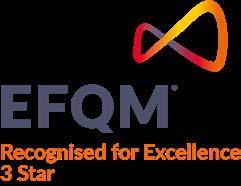
33 The FFD Team
“
A Decade of Impact
Ten years, multiple projects, tens of thousands of farmers capacitated, hundreds of thousands of beneficiaries reached, and finally, all the work to promote inclusive, systemic changes. FFD has facilitated smallholder farmers’ and forest keepers’ resilience, well-being, and strengthened their organizations to continue operating even if our collaboration may end. This has been the story of FFD, and we are glad to continue it.

The testimonies presented in this publication show the mark that our work has left in so many people’s lives. While welfare and income generated are important, we believe strongly that the key to any progress is in people’s minds. Any change in practices requires a change in attitudes. Skills and knowledge are needed to support this and in this, the role of twins can be crucial.
Any change in practices requires a change in attitudes.
At the beginning of any project, the enthusiasm and motivation are normally high and the implementation starts with energy. The moments of change arise when problems and challenges are met. In many cases, those are the pivotal times that determine whether the objectives of the project can be sustained and kept. Coaching, encouragement, and support provided in those moments are needed to solve the issues and to find again the motivation and strive to continue. Consistent backing and flexibility are the key to facilitating the development path through the rocky patches. In this FFD, represents a reliable partner.
A Decade of Impact
We wish FFD growing success for its next decade and are pleased to be able to count on FFD's strong contribution also to the added value of AgriCord alliance.
“ 34
– Katja Vuori, Programme Director of AgriCord
FFD’s strength is its ability to connect project and grassroots teachings, observations and messages to international and global development policy. Fingo’s working groups, members and partners have benefited from this strong analysis and FFD’s solid expertise. We feel that FFD is one of the most versatile organizations for its size, combining livelihood and private sector development issues, inequality and equality issues, agriculture and forestry, and climate work through coherent projects from the local level to the global political arenas.

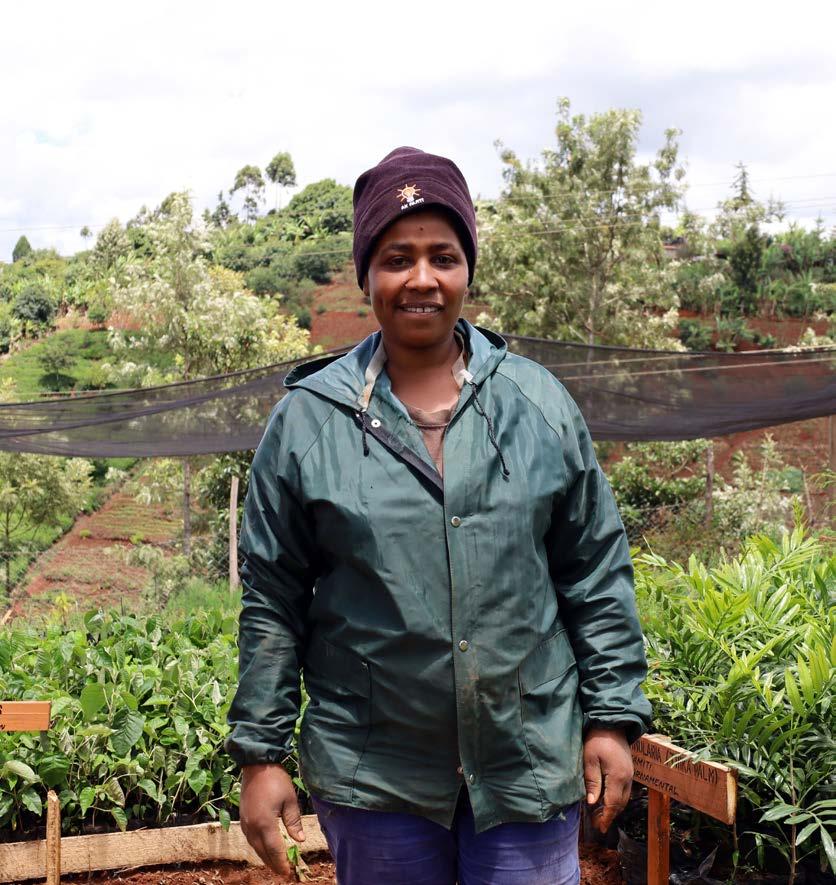
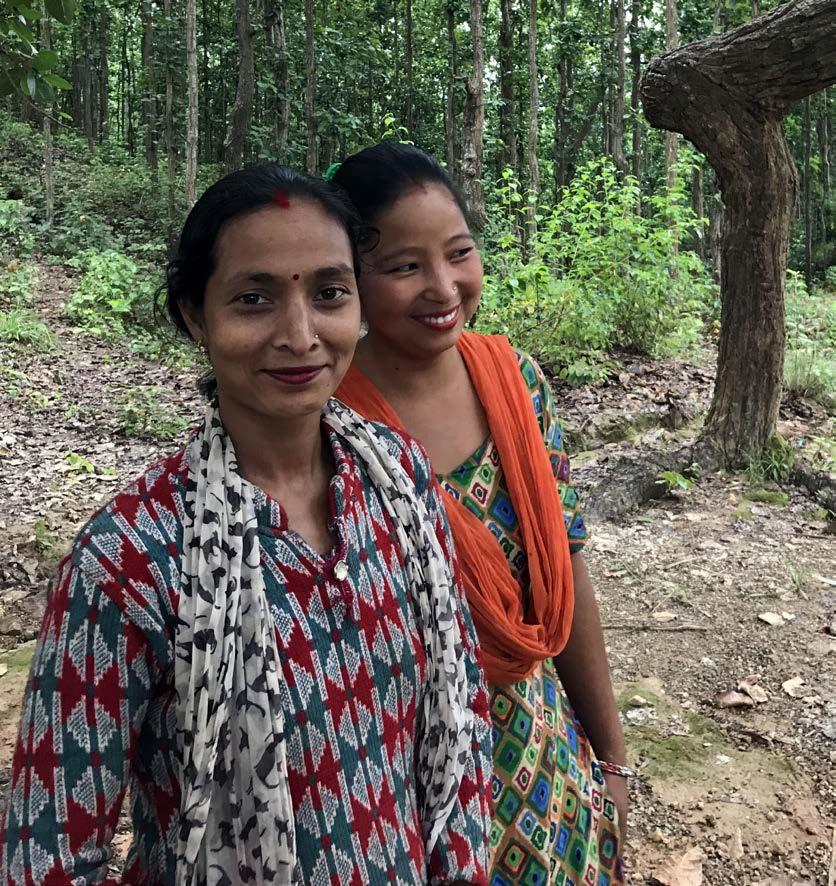
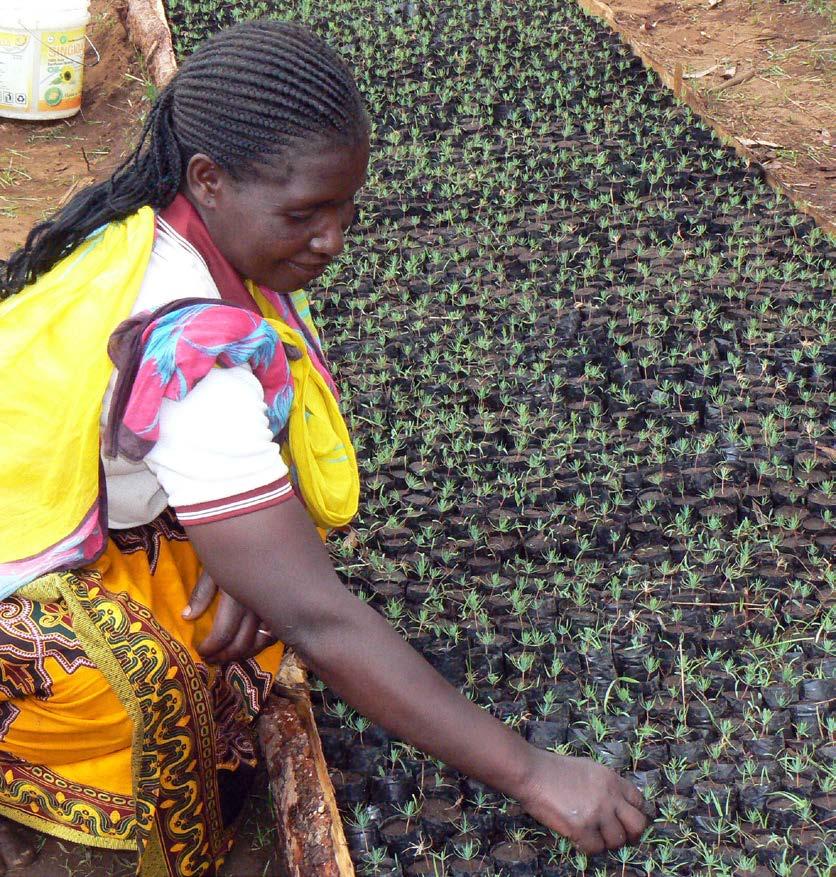


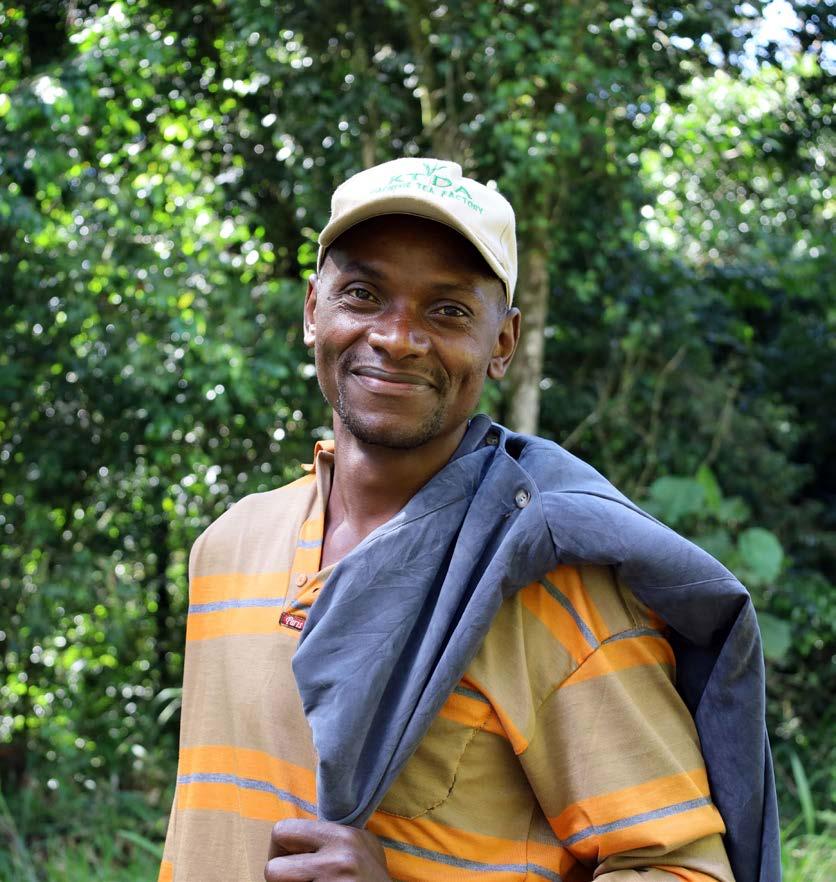 – Juha-Erkki Mäntyniemi, Executive Director of Fingo
– Juha-Erkki Mäntyniemi, Executive Director of Fingo
“
Ten years, multiple projects, tens of thousands of farmers capacitated, hundreds of thousands of beneficiaries reached, and finally, all the work to promote inclusive, systemic changes. FFD has facilitated smallholder farmers’ and forest keepers’ resilience, well-being, and strengthened their organizations to continue operating even if our collaboration may end. This has been the story of FFD, and we are glad to continue it.

36 FFDfinland ffdfinland FFDFinland
Food and Forest Development Finland www.ffd.fi













 Sanna-Liisa Taivalmaa, Rural Development Adviser for the Ministry for Foreign Affairs of Finland
Sanna-Liisa Taivalmaa, Rural Development Adviser for the Ministry for Foreign Affairs of Finland




























 Director of Pellervo Coop Center
Director of Pellervo Coop Center


































 – Juha-Erkki Mäntyniemi, Executive Director of Fingo
– Juha-Erkki Mäntyniemi, Executive Director of Fingo
